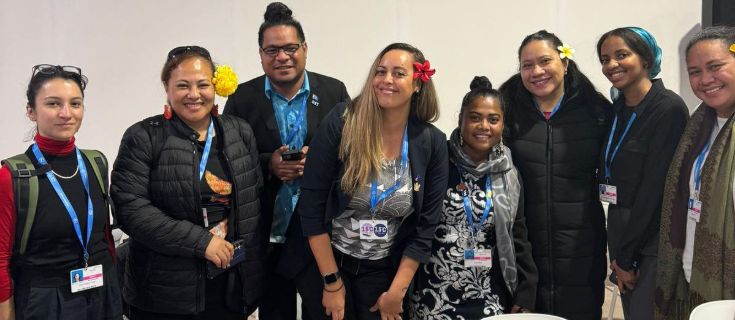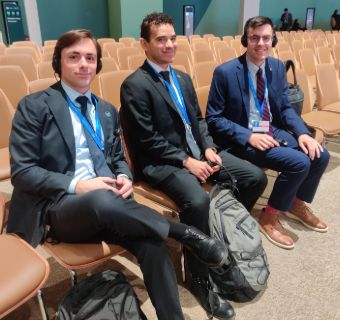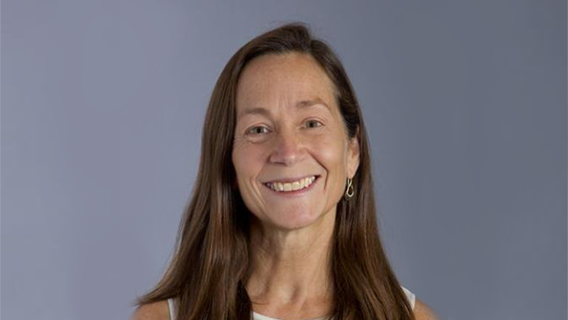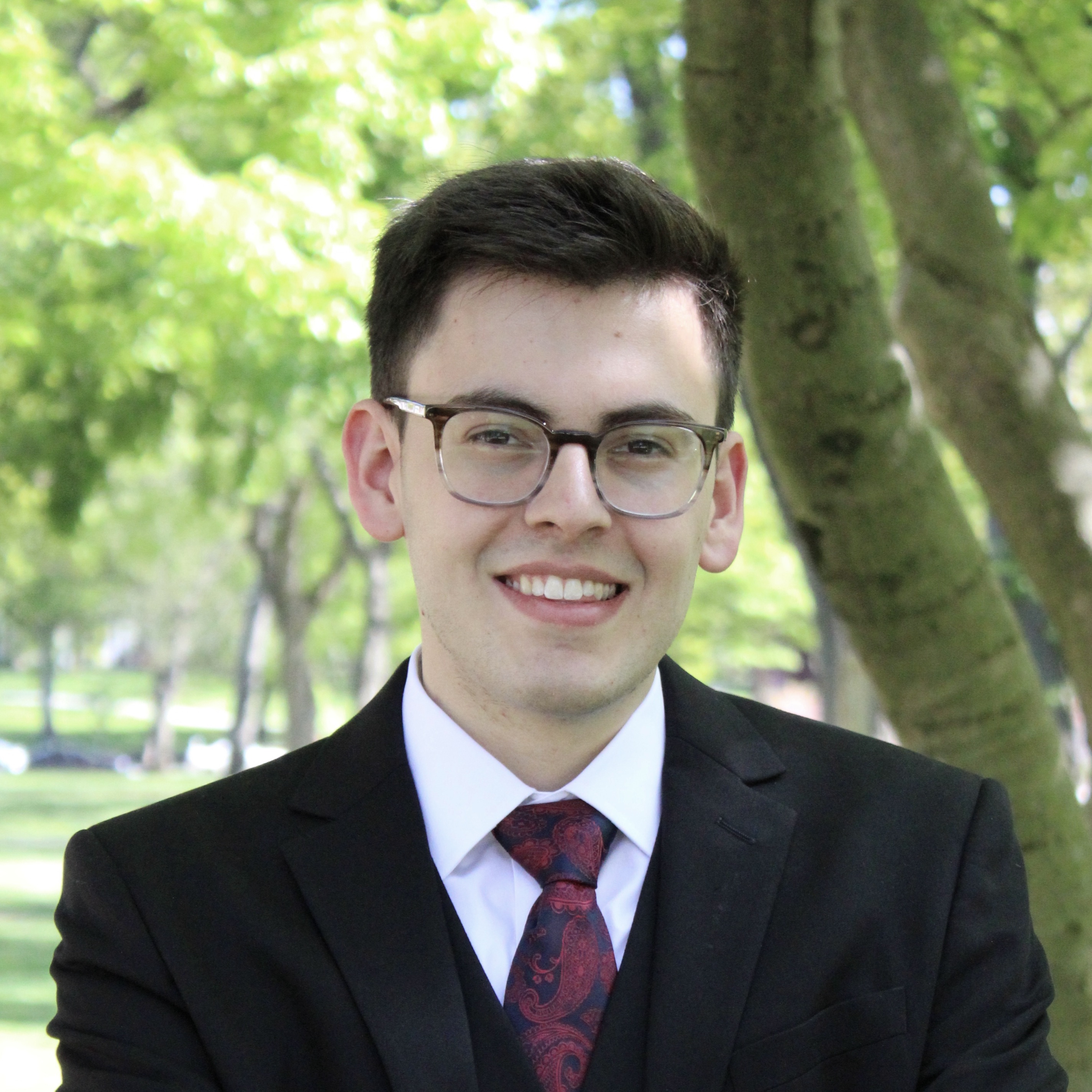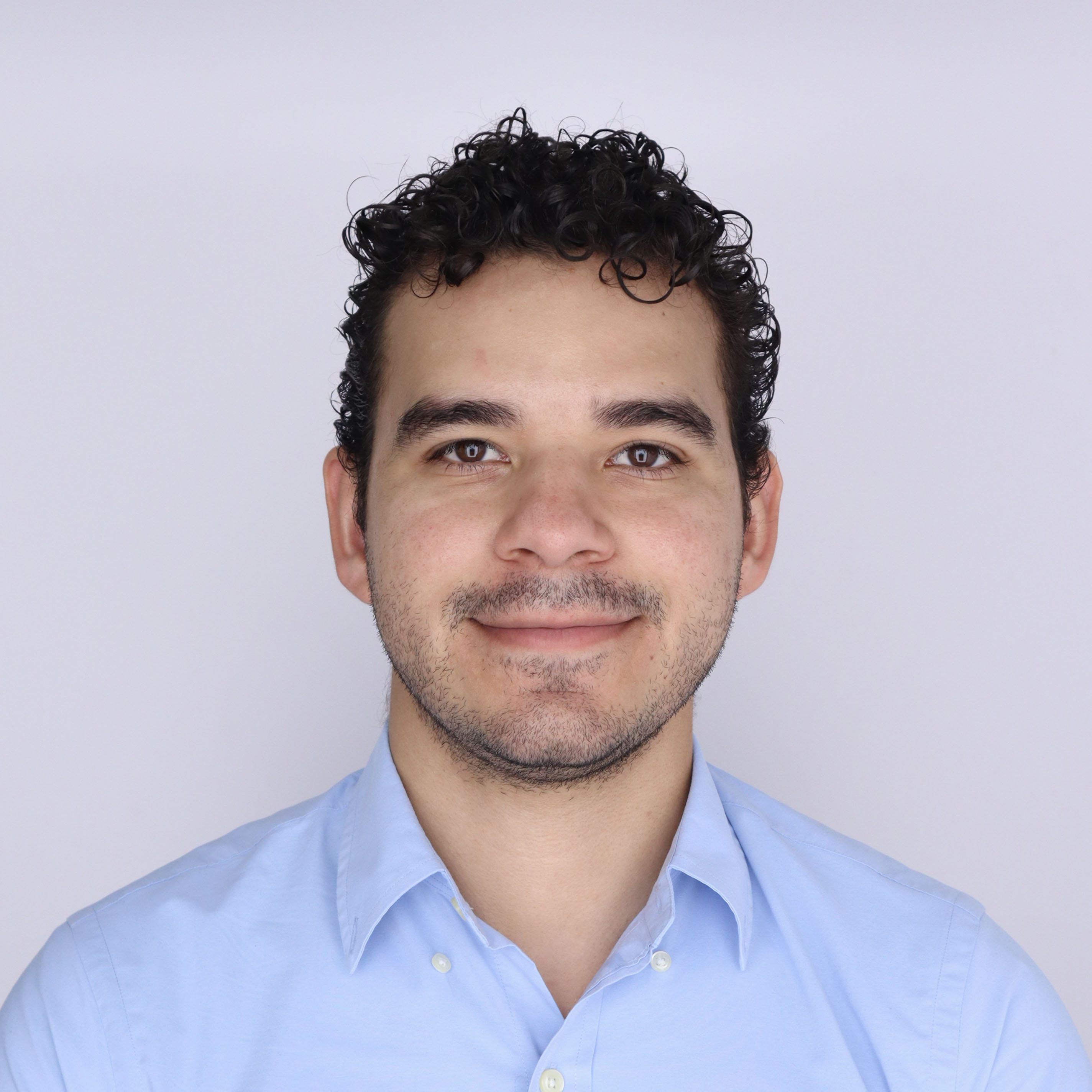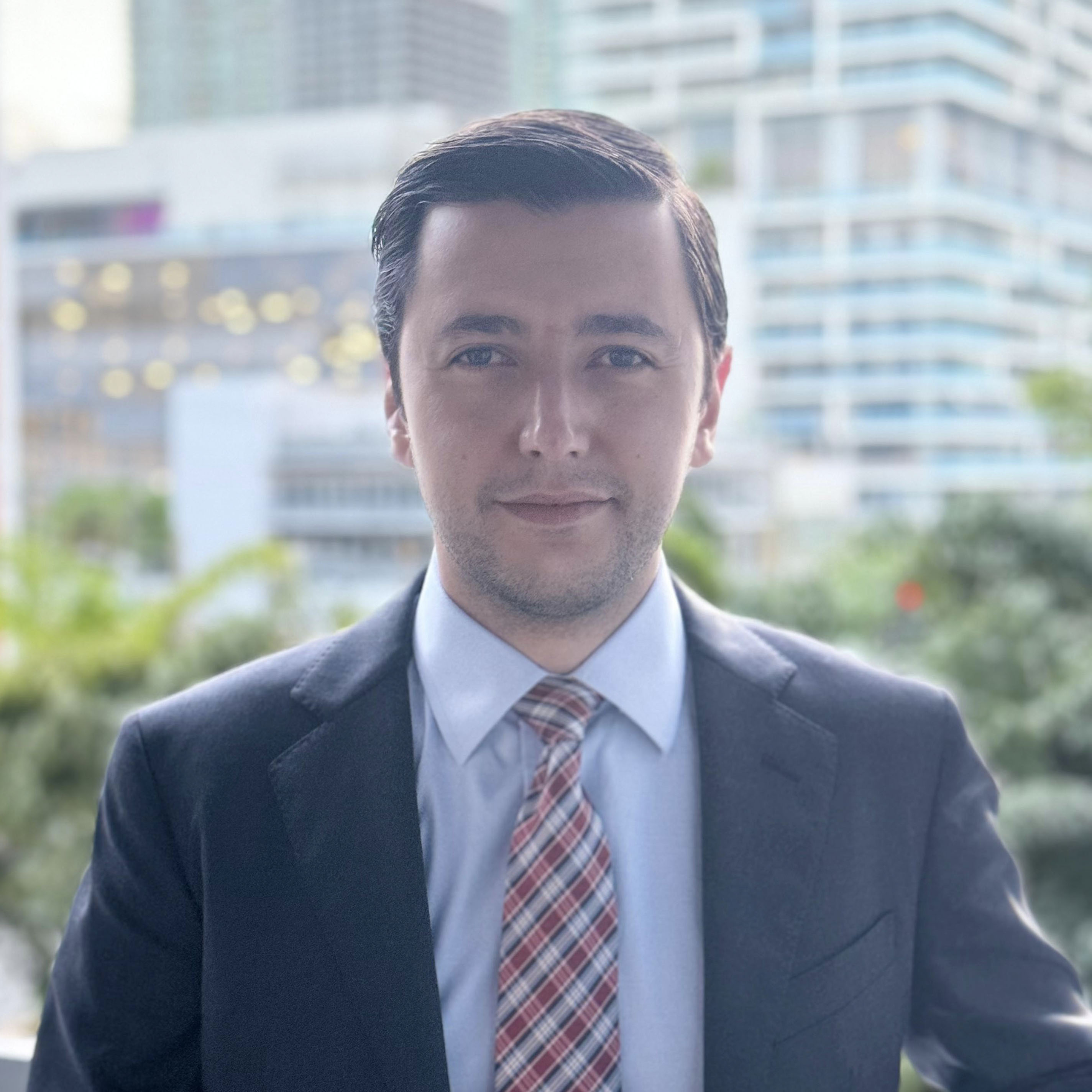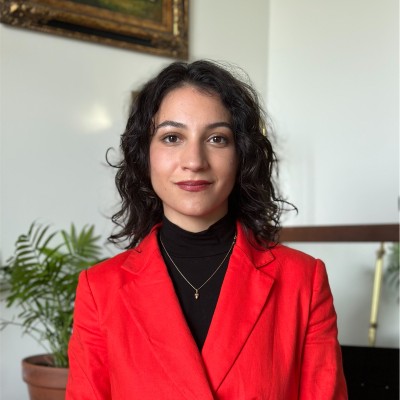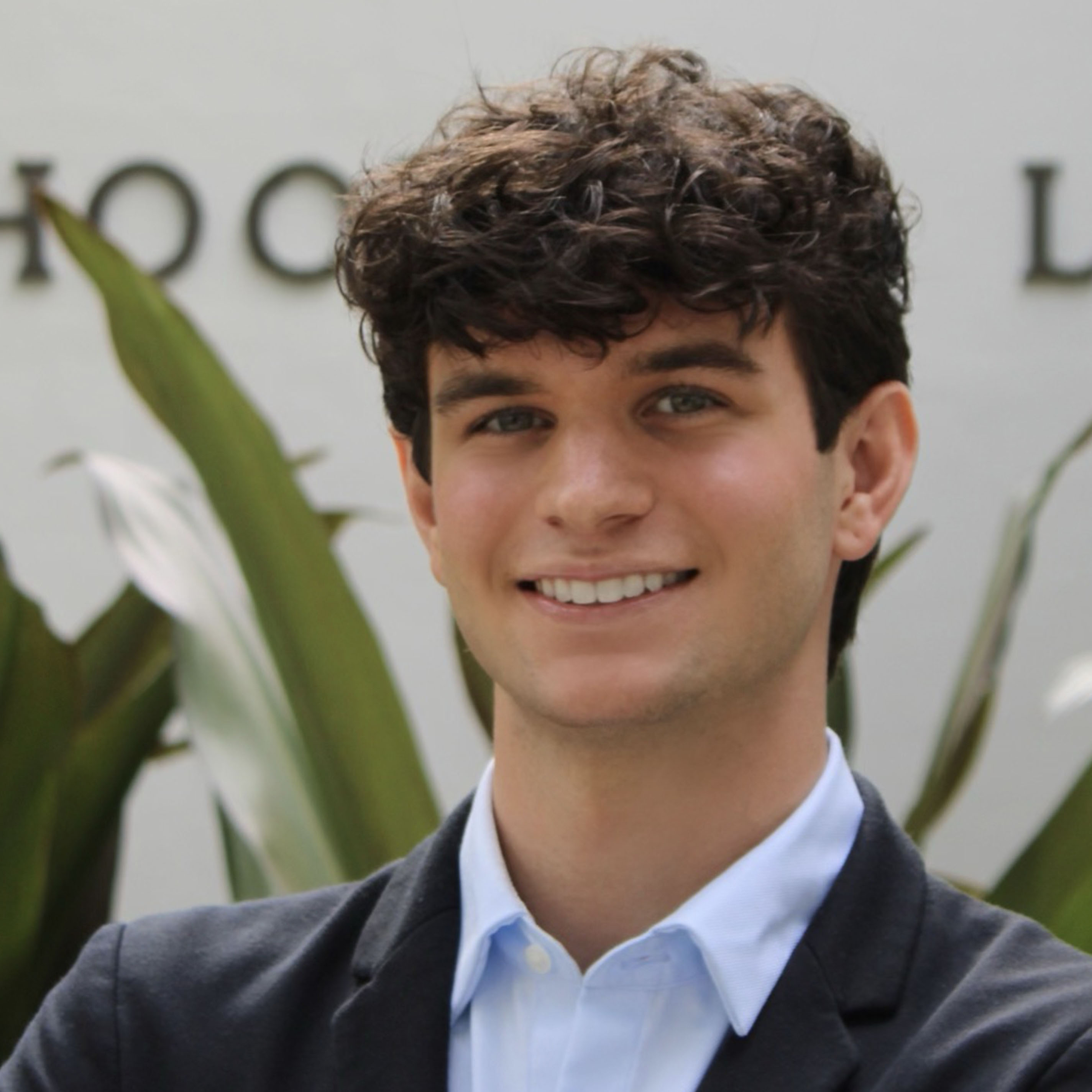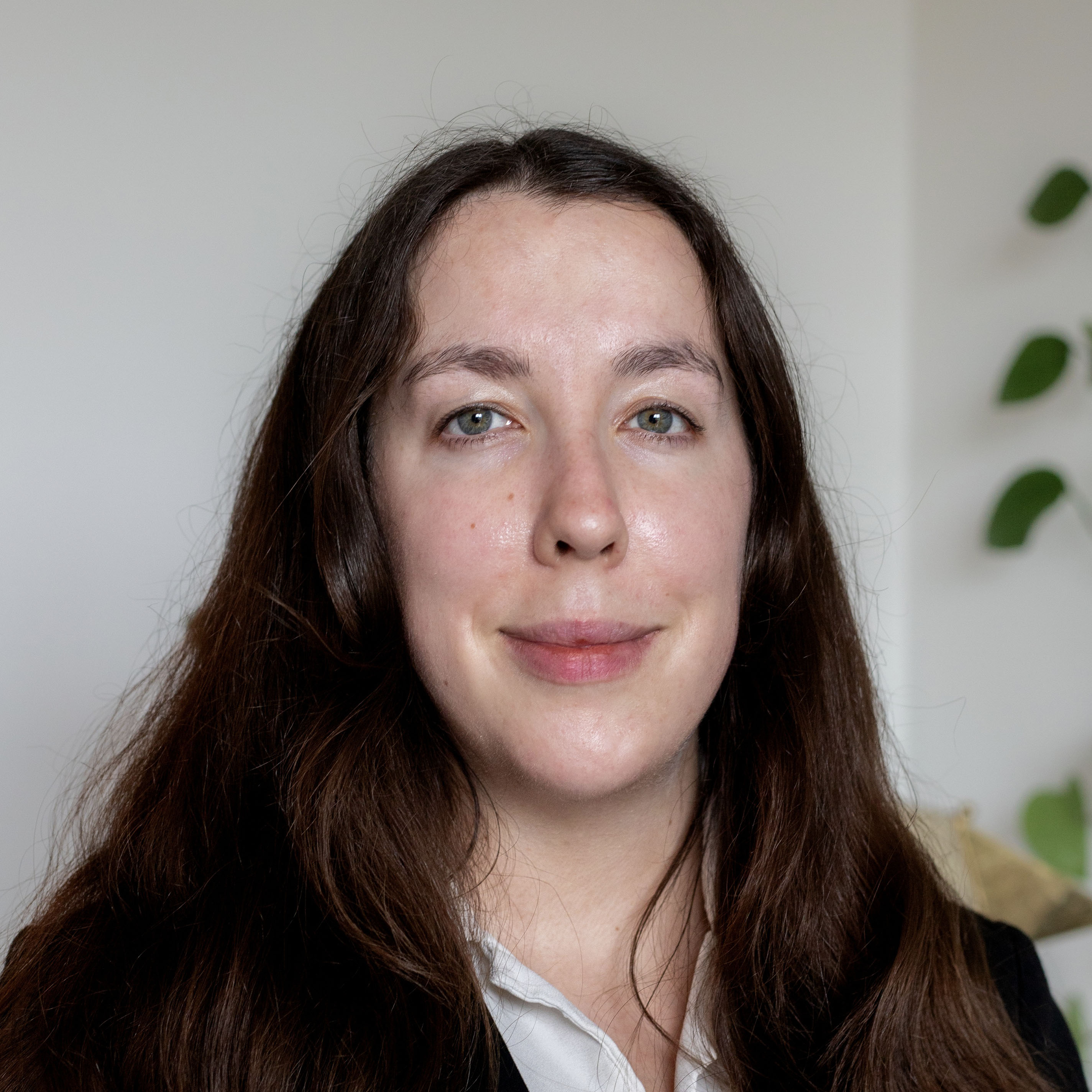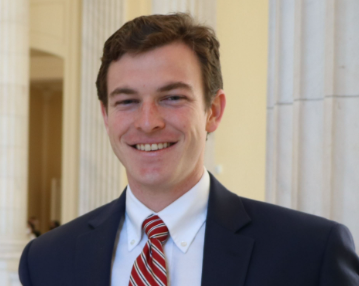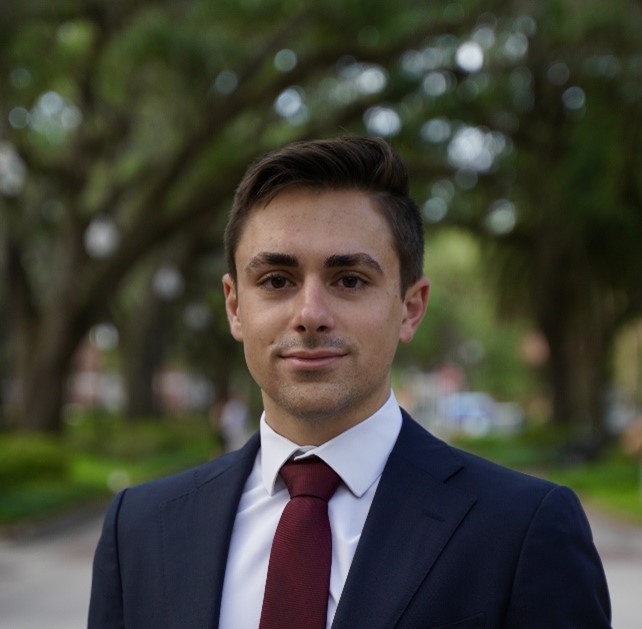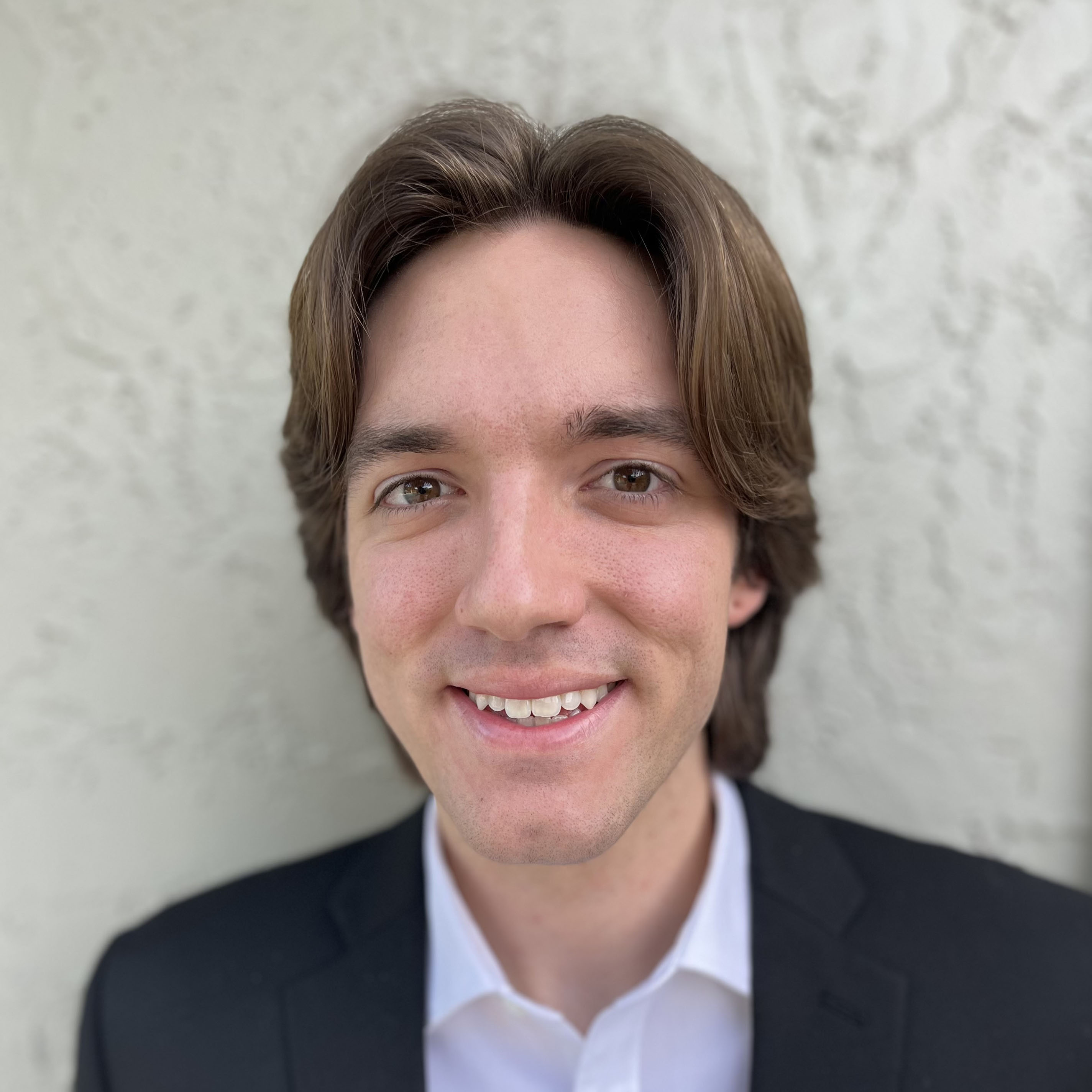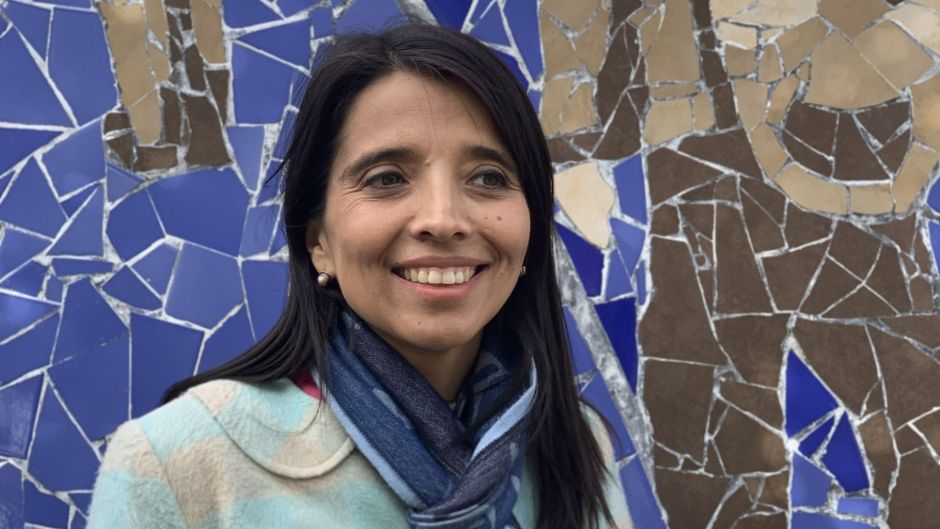COP Preparations - November 10, 2024
For two weeks, government representatives from around the world are gathering in Baku, Azerbaijan, for the 29th Conference of the Parties (COP 29) to discuss how to address the ongoing challenge of climate change. The big questions this year are how to move forward on the Paris Agreement goals and how to finance all the work that needs to be done. Building on the success of previous years, students and faculty from UM will be on the ground presenting research, supporting delegations from small island states, and working with partners from Miami-Dade County and environmental NGOs. UM's COP delegation will be coordinated by Professor Jessica Owley and Climate Law Fellow Valerie Fajardo, with a team of dedicated law students and an engineering PhD student. Visiting Professor Tracy Bach, an expert on international climate law, helped prepare the students.
Working with Small Island Nations
Six JD students (Alyssa, Dursun, and Patrick for week one; Justin, John, and Quinten for week two) are supporting the Federated States of Micronesia. Two JD students (Jayson for week one and Kyra for week two) are supporting the country of Samoa. Small developing island nations are among the hardest hit by climate change, but they often have the smallest delegations at the talks due to funding and logistical constraints.
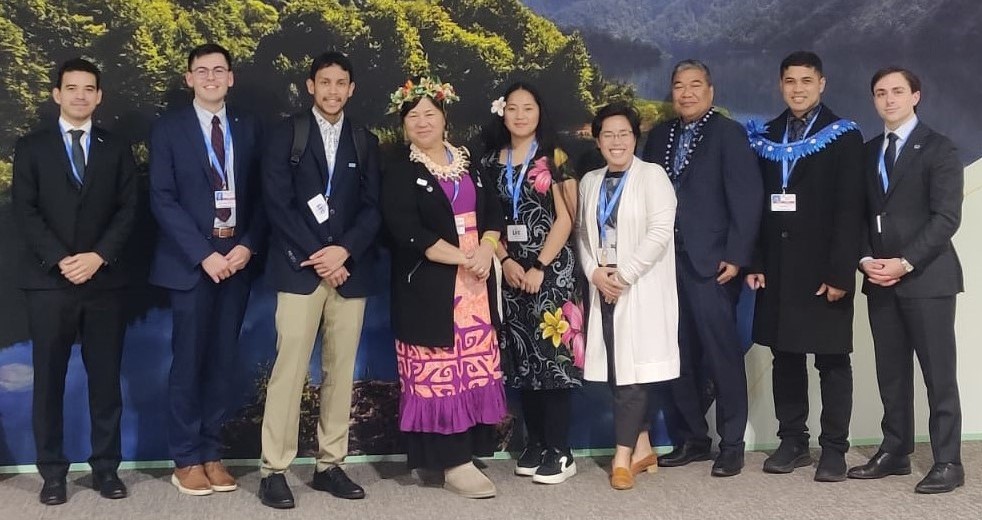 UM Students with the Micronesian Delegation (L-R)
UM Students with the Micronesian Delegation (L-R)
John Dennis, Justin Alexander, Joshua Pangelinan, Lucille Apis-Overhoff, Tara Shaniah Arnold, Valerie Fajardo, H.E. Amb. Jeem Lippwe, Mahoney Mori, & Quinten Smith
At COP 29, island delegations are even smaller. Our students work long hours providing meaningful assistance by helping to keep track of negotiations and performing small research tasks.
Supporting NGOs
Two of our students are working with nonprofit organizations. SJD student Lorena is supporting the Center for International Environmental Law (CIEL) working on a variety of issues related to human rights, gender, and carbon markets. JD student Kyle Spohn is partnering with Aksyon Klima Pilipinas, the largest civil society network for climate action in the Philippines. Environmental NGOs like AKP and CIEL play an essential role as engaged observer organizations, keeping people informed about and engaged in the talks while pushing negotiators to adopt ever-improving mitigation and adaptation policies.
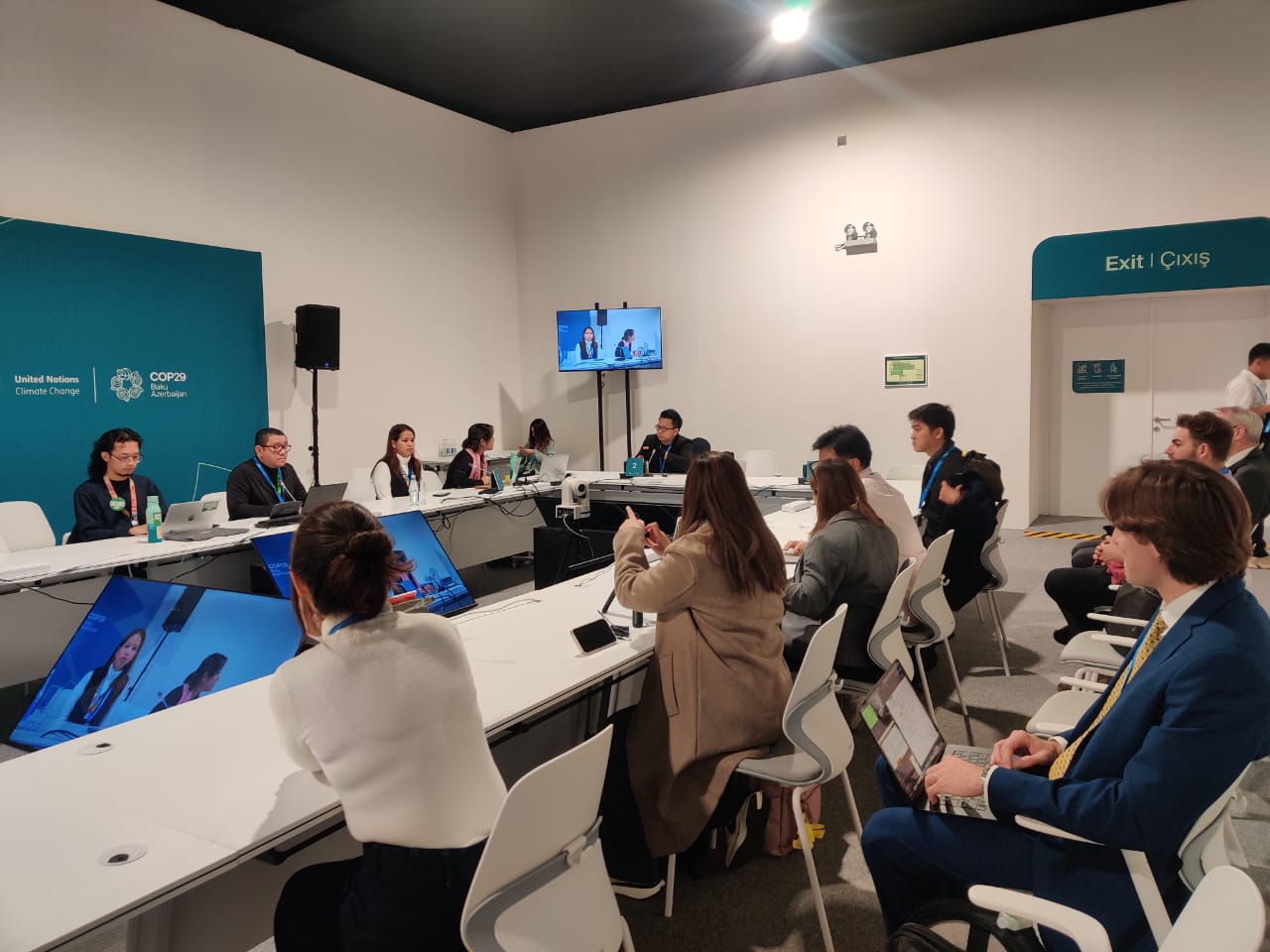 Kyle Spohn at a press conference hosted by Aksyon Klima Pilipinas on Nov. 18, 2024
Kyle Spohn at a press conference hosted by Aksyon Klima Pilipinas on Nov. 18, 2024
Bridging the Gap Between Local and International Efforts
PhD student Danielle Bejar will be the boots on the ground for the Miami-Dade County Office of Resilience, summarizing events and fostering collaborations for the world’s first Heat Officer, Jane Gilbert.
Local governments are important players in climate action but have no official role at the treaty negotiations. Only national governments have a place at the table and local governments don’t qualify as accredited observer organizations. Negotiations often discuss projects and initiatives that are best conducted at the local level. Outside the negotiation rooms, there are many presentations and conversations about local efforts and climate technologies.
UM’s relationship with the county is a continuing one, having cooperated in COP 28 in Dubai, UAE last year.
The University of Miami delegation is poised to make a significant impact in Baku while providing much-needed support to delegations and constituencies. By supporting small island nations, strengthening partnerships with environmental NGOs, and enhancing local government involvement, UM students and faculty will contribute to the global effort to address climate change. Not only will their dedication and expertise help ensure that the voices of the most vulnerable are heard and that progress is made towards a more sustainable future, but participating in COP29 also provides a unique learning experience for the students. As UM brings students to the COP for the fourth time, this opportunity allows them to witness firsthand the complexities of international climate negotiations, develop valuable skills, and establish networks that will serve them well in their future careers as climate leaders and advocates.




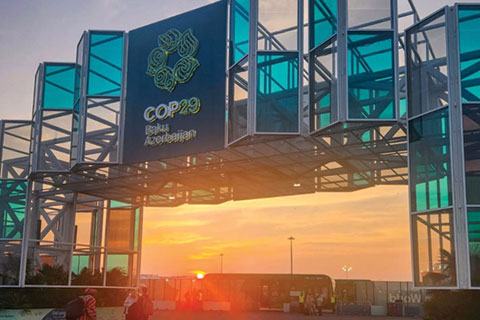
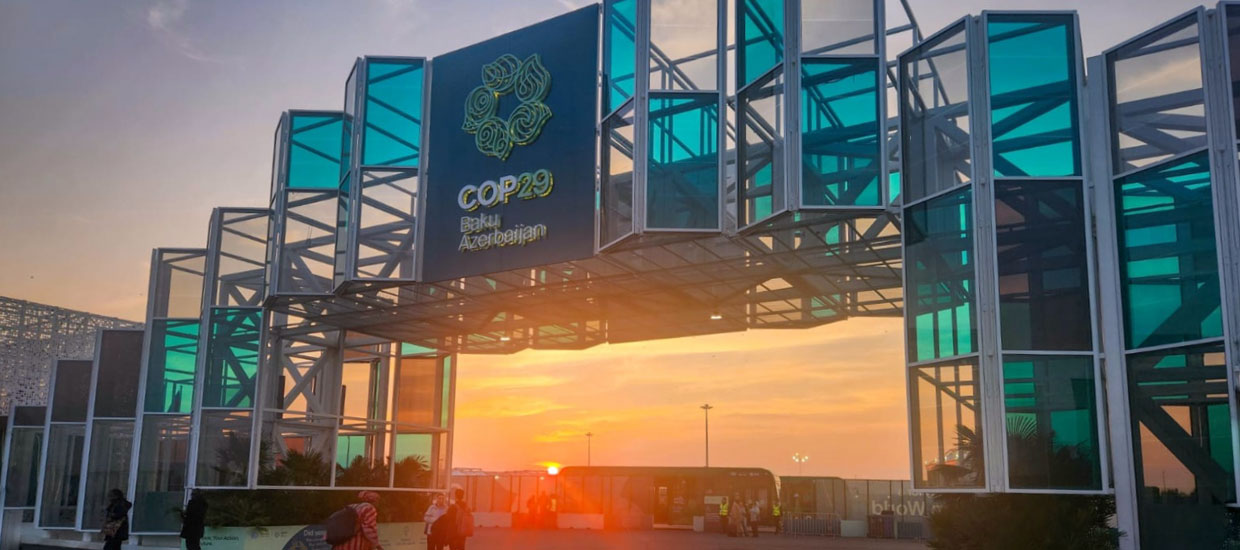

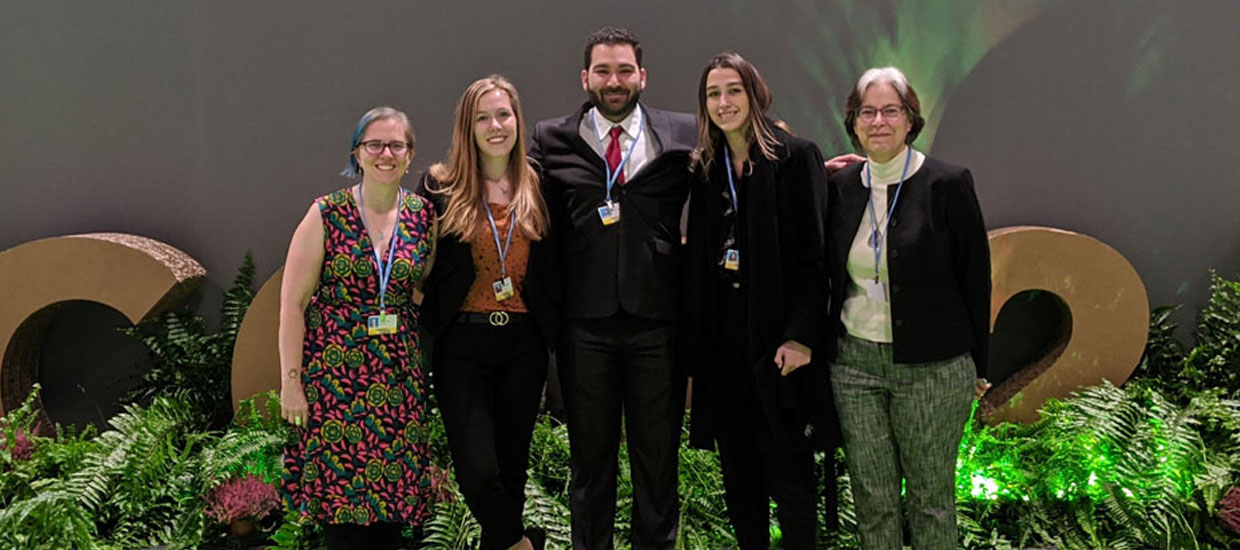
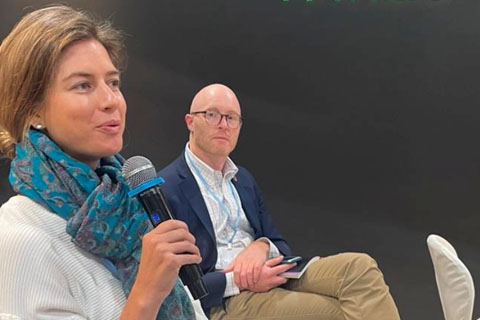
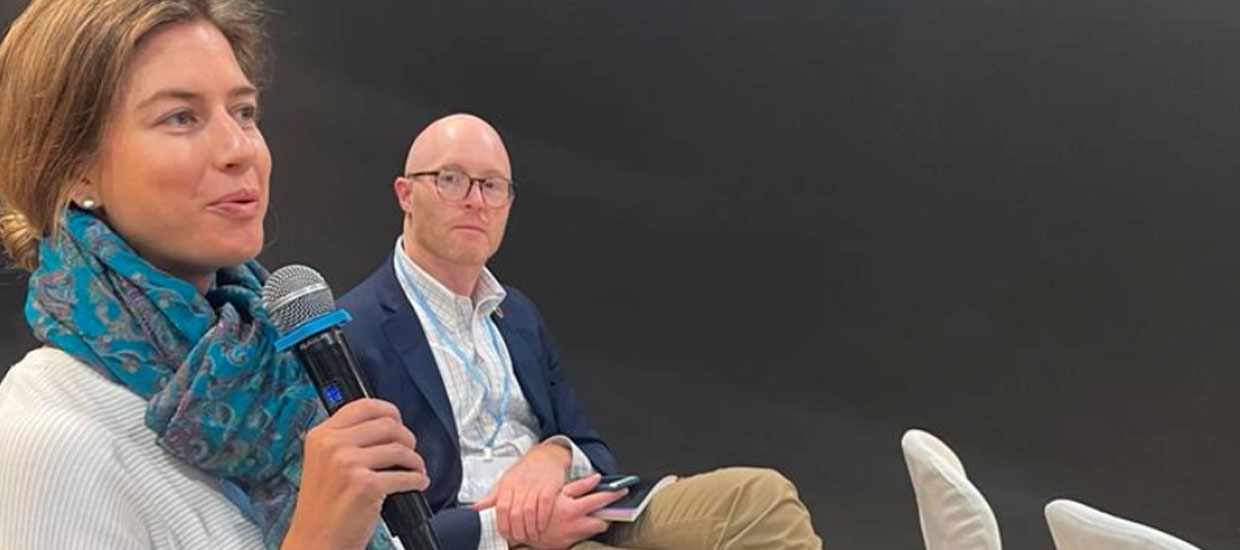
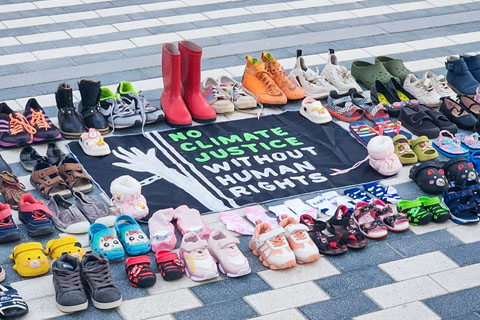
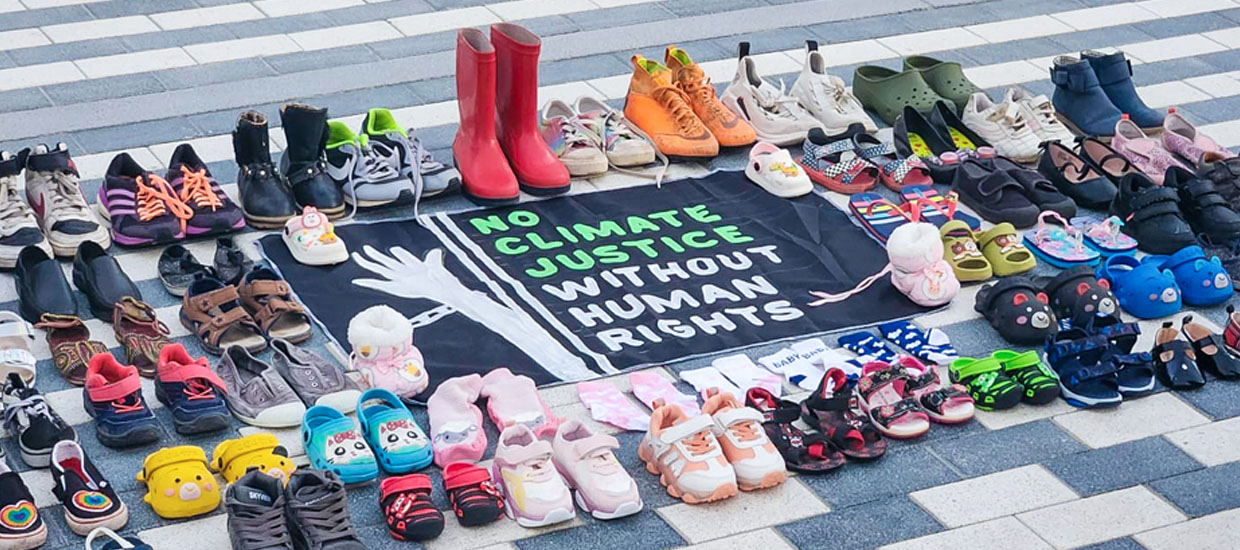
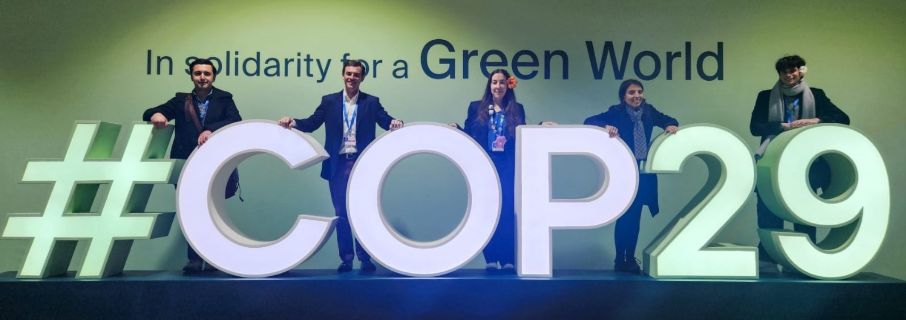
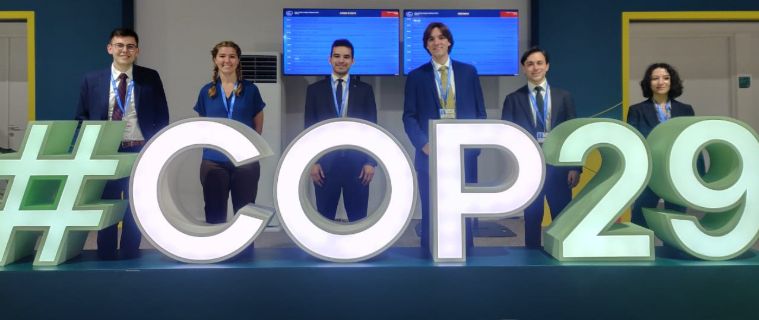
 UM Students with the Micronesian Delegation (L-R)
UM Students with the Micronesian Delegation (L-R) Kyle Spohn at a press conference hosted by Aksyon Klima Pilipinas on Nov. 18, 2024
Kyle Spohn at a press conference hosted by Aksyon Klima Pilipinas on Nov. 18, 2024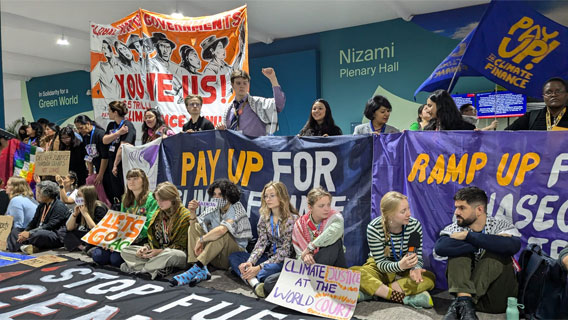
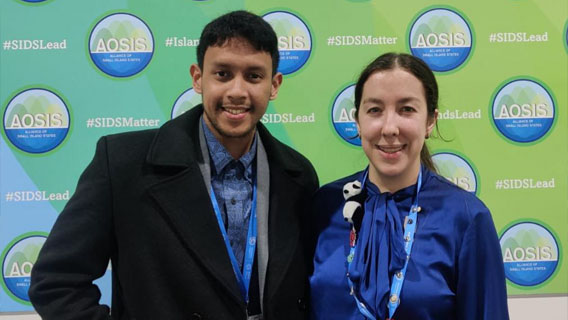
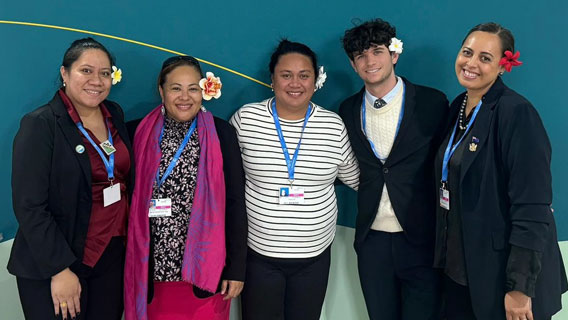
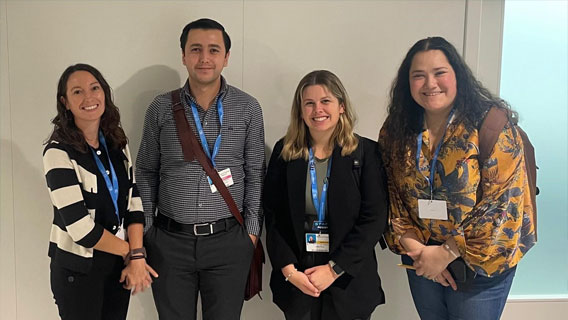
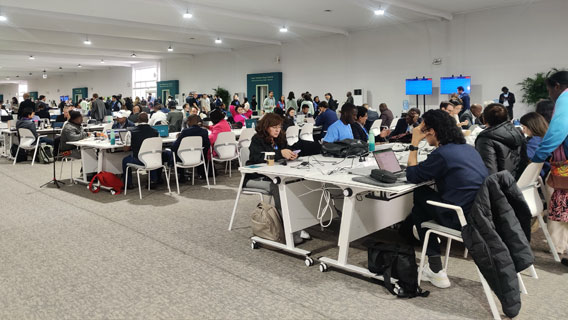
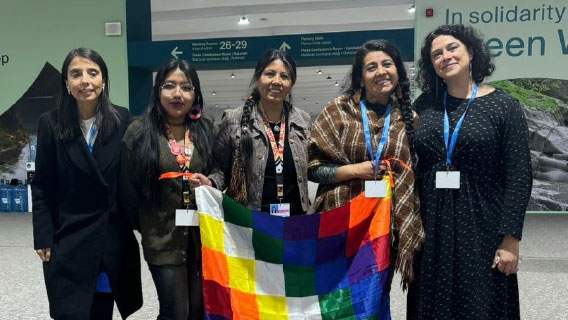
 Climate activists presenting developed countries with their "climate invoice"
Climate activists presenting developed countries with their "climate invoice"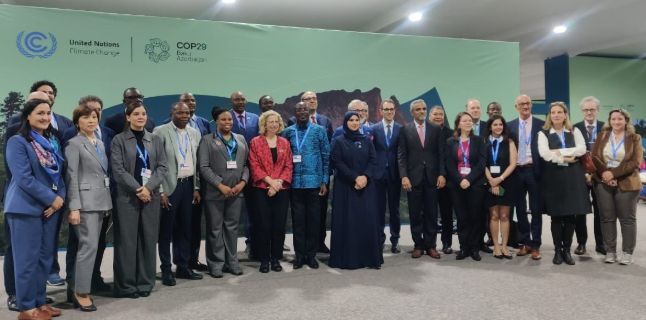 Global Cooling Pledge Ministers and Heads of Delegation with UNEP and COP Leadership
Global Cooling Pledge Ministers and Heads of Delegation with UNEP and COP Leadership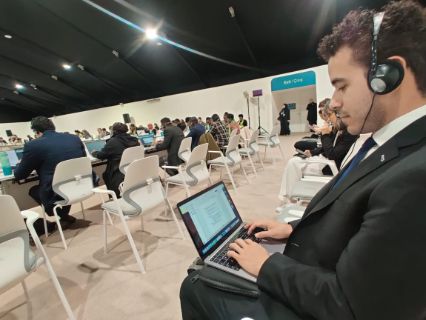
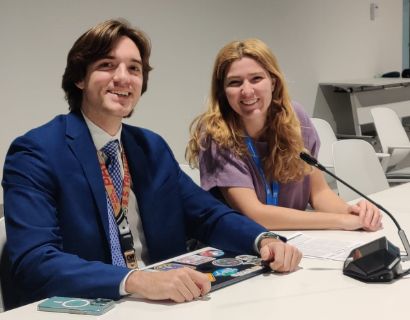 UM Students, Kyle Spohn and Danielle Bejar, at the coordination meeting for Research and Independent Nongovernmental Organizations on 22 November 2024
UM Students, Kyle Spohn and Danielle Bejar, at the coordination meeting for Research and Independent Nongovernmental Organizations on 22 November 2024